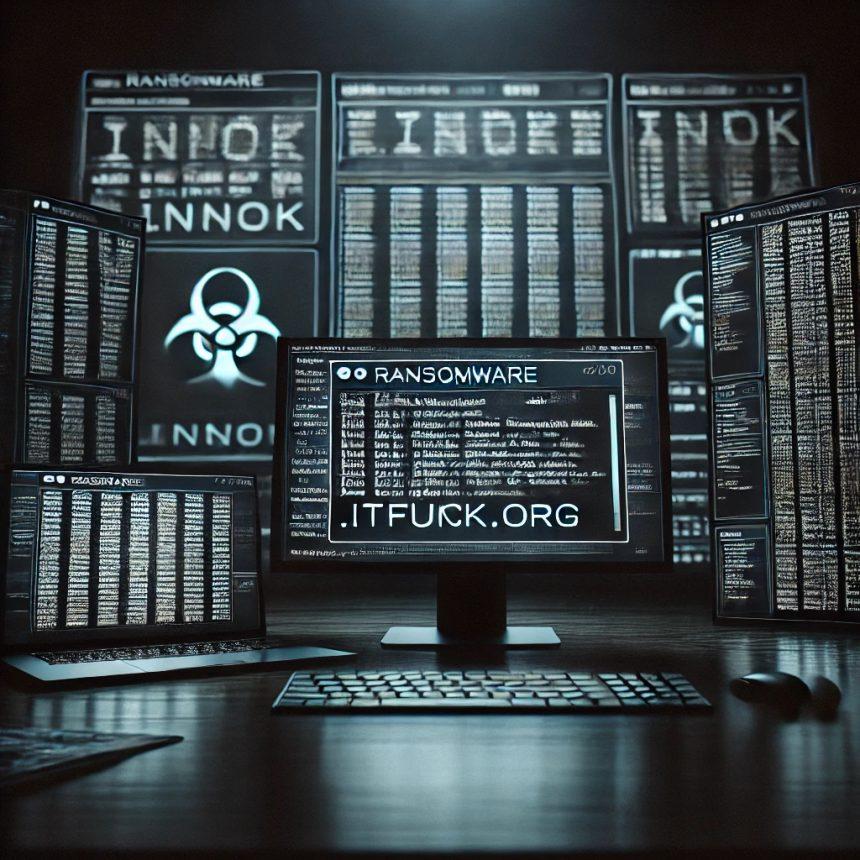Cybercriminals are continually evolving their tactics, and FXLocker ransomware is yet another example of a destructive file-encrypting malware that preys on unsuspecting victims. This ransomware encrypts files and demands a steep ransom of 0.75892 BTC (equivalent to over $73,000 USD at the time of writing).
In this article, we will cover:
- The details of FXLocker ransomware, including its behavior and impact.
- A step-by-step removal guide using SpyHunter.
- Preventive measures to protect yourself from future ransomware attacks.
FXLocker Ransomware Overview
FXLocker is a ransomware-type program that locks files by encrypting them and appends the “.fxlocker” extension to the filenames. It then displays a ransom note both in a pop-up window and in a text file named “README.txt”.
The ransomware demands payment in Bitcoin and provides contact details to negotiate the ransom. However, it lacks a valid Bitcoin wallet address, indicating that it may be a test release or an unfinished version.
Below is a summary table of the FXLocker ransomware’s characteristics:
| Attribute | Details |
|---|---|
| Name | FXLocker Ransomware |
| Threat Type | Ransomware, Crypto Virus, Files Locker |
| Encrypted File Extension | .fxlocker |
| Ransom Note File Name | README.txt |
| Ransom Amount | 0.75892 BTC (~$73,000 USD) |
| Contact Emails | haxcn@proton.me, wikicn@proton.me |
| Detection Names | Avast (FileRepMalware [Ransom]), ESET-NOD32 (Python/Filecoder.ATJ), Kaspersky (HEUR:Trojan-Ransom.Python.Agent.gen), Malwarebytes (Agent.Spyware.Stealer.DDS), Microsoft (Trojan:Win32/Wacatac.B!ml) |
| Symptoms of Infection | Files become inaccessible, renamed with .fxlocker, ransom demand appears in a pop-up and a text file, warning against file modifications. |
| Distribution Methods | Malicious email attachments, drive-by downloads, fake updates, torrent sites, cracked software. |
| Damage | File encryption, possible data theft, and additional malware infections. |
| Danger Level | Extremely High – severe data loss, financial risk, and system vulnerability. |

Remove
FXLocker Ransomware
With SpyHunter
Download SpyHunter now, and scan your computer for this and other cybersecurity threats for free!
FXLocker Ransom Note: Full Text
When FXLocker encrypts a system, it presents the following pop-up message and text file:
[NOTICE]
Your system has been encrypted by FXLocker.
Please follow the payment instructions to recover your files.
[INSTRUCTIONS]
1. Payment amount: 0.75892 BTC
2. Bitcoin Address: 1FxA6Eaa
3. Payment Deadline: 2025-02-17
Contact Support with your Reference ID to obtain the decryption keys.
[INFORMATION]
Reference ID: NJQPTUJC6FFOVFIV
[WARNINGS]
- Failing to complete payment within the deadline may lead to permanent data loss.
- Do not rename encrypted files; this can prevent decryption.
[CONTACT SUPPORT]
haxcn@proton.me, wikicn@proton.me
[NOTICE]
You have until 2025-02-17 to complete the payment. Failure to comply will result in the permanent loss of your files.
/***************************************************
* PAY ATTENTION *
***************************************************
Please do not close this window or restart your computer.
Every action you take could result in permanent loss of your data.
Click the 'Contact Support' button below to secure your files.
***************************************************This message threatens the victim with permanent data loss and advises against renaming files or closing the pop-up window.
How Did FXLocker Infect My Computer?
FXLocker spreads using several common ransomware distribution methods, including:
- Phishing Emails – Malicious attachments disguised as invoices, job offers, or urgent notifications.
- Fake Software Updates – Deceptive pop-ups prompting users to update software (e.g., Flash Player, Windows, etc.).
- Torrent and Cracked Software Downloads – Illegitimate downloads often carry ransomware or trojans.
- Malicious Websites & Ads – Drive-by downloads from compromised or fraudulent sites.
- USB Drives & Network Infections – FXLocker may spread through local networks or removable storage devices.
How to Remove FXLocker Ransomware & Restore Your System

Remove
FXLocker Ransomware
With SpyHunter
Download SpyHunter now, and scan your computer for this and other cybersecurity threats for free!
Warning: Removing FXLocker does NOT decrypt your files. However, removing the ransomware prevents further encryption and additional malware installations.
Step 1: Disconnect from the Internet
To prevent the ransomware from communicating with its server or encrypting more files:
- Unplug your Ethernet cable or disconnect from Wi-Fi immediately.
Step 2: Boot into Safe Mode with Networking
- Restart your PC and press F8/F4 before Windows loads.
- Select Safe Mode with Networking from the boot menu.
Step 3: Scan and Remove FXLocker with SpyHunter
Using SpyHunter, an advanced anti-malware tool, ensures complete detection and removal of FXLocker.
To remove FXLocker using SpyHunter:
- Download and install SpyHunter.
- Open the program and run a full system scan.
- Once the scan is complete, click Fix Threats to remove FXLocker from your system.
Step 4: Restore Your Files
Unfortunately, decryption without the original key is impossible. However, you can try:
- File Recovery Software – Programs like Recuva or EaseUS Data Recovery may retrieve shadow copies of your files.
- Check Backups – If you have external or cloud backups, restore your files.
- Use Free Decryption Tools – Keep an eye on cybersecurity forums like NoMoreRansom.org for updates on possible decryption solutions.
How to Prevent Ransomware Infections
Use Reliable Security Software
- Install SpyHunter or a similar anti-malware tool for real-time protection.
Be Cautious with Emails
- Do not open attachments from unknown senders.
- Avoid clicking on links in suspicious emails.
Keep Software Updated
- Always update your Windows OS, browsers, and antivirus software.
Backup Your Data Regularly
- Use external hard drives, cloud storage, and network-attached storage (NAS).
- Keep backups disconnected from your system when not in use.
Disable Macros in Microsoft Office
- Many ransomware threats use malicious macros in Word or Excel documents.
Avoid Torrents & Cracked Software
- Only download applications from official websites and trusted sources.
Conclusion
FXLocker ransomware is an extremely dangerous crypto-virus that locks files and demands a massive ransom of 0.75892 BTC. Unfortunately, paying the ransom is not recommended since cybercriminals often do not provide the decryption key.
Instead, victims should use SpyHunter to remove the malware and attempt file recovery using backups or data recovery tools. The best defense against ransomware is prevention, including regular backups, security software, and cautious browsing habits.

Remove
FXLocker Ransomware
With SpyHunter
Download SpyHunter now, and scan your computer for this and other cybersecurity threats for free!





